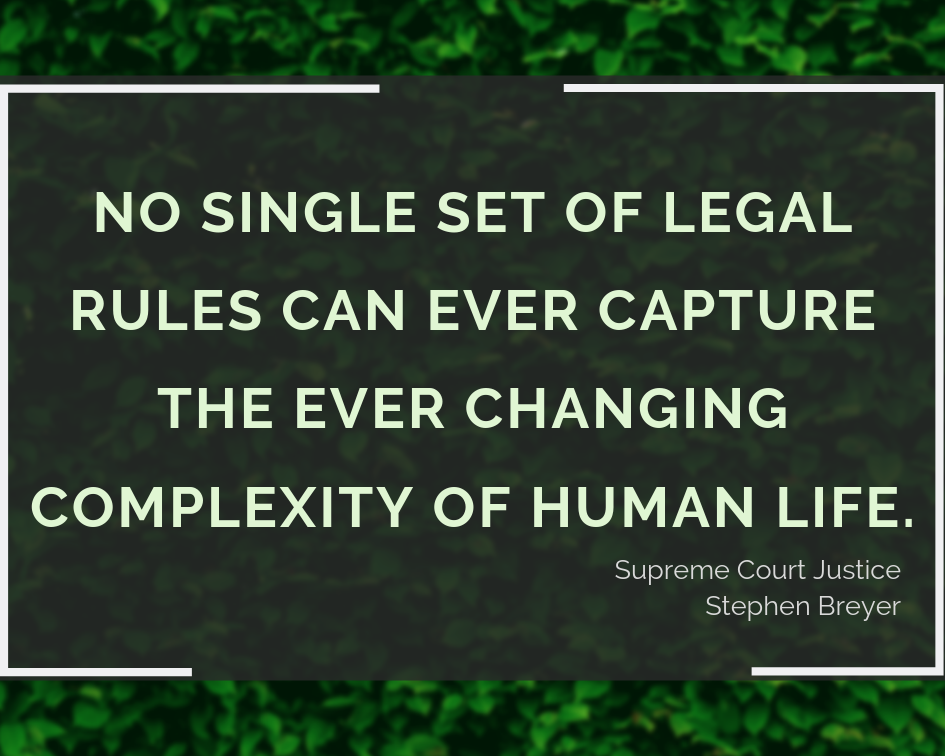Bright-line rules and standards were created with a ‘simple’ goal that often leads to more harm than good. The idea is to draw a hard line of good or bad, acceptable or not, but often leaves out the difficult situations people often find themselves in. While the idea of ‘equal punishment for the same act’ might be well meant, it leaves out the human factor and can have real and damaging consequences.
In 1966, Ernesto Miranda signed a confession that led to a 20-30-year sentence – despite the only evidence incriminating him being circumstantial. His signed confession swore that he did it under no pressure, but his lawyer had the confession thrown out after arguing it was not voluntary. No one told him about his right to remain silent or consult with a lawyer. The Miranda case became a landmark in Bright-line Standards, deciding that everyone in custody must be specifically read what came to be known as their Miranda Rights – a Bright-line standard, no exceptions.
When it comes to property management, landlords and owners have plenty of Bright-line Standards that seem like a steady way to keep their property and tenants safe. No criminals, no felonious records, no sex offenders, no evictions. These seem like good rules to many rental properties but like most rules, its not always fair. Just because the same rule is applied across the board, doesn’t mean all players are really being treated as just.

Supreme Court Justice Stephen Breyer said it best: “No single set of legal rules can ever capture the ever-changing complexity of human life.”
This is important to keep in mind. Felonies have the connotation of violence, or being dangerous, but that isn’t always the case. People without felonies can be just as dangerous, and people with them may not be. Recently we published an article about the different types of smoke, mentioning that nearly half of the United States has legalized marijuana in some form or another. In other states, having this could lead to felony records.
Bright-Line Standards
Alternatives
No felonies
No history of property crime within the last 5 years.
No violent crime convictions.
No sex offenses.
No prior arrests
No prior convictions
Subjective Information
Objective Information
Bright-Line Standards
No Felonies
No Prior Arrests
Subjective Information
Alternatives
No history of property crime within the last five years
No violent crime convictions
No sex offenses
No prior convictions
Objective information
The Bright-line Standard of “no felonies” can lead to bias profiling that only causes more harm. They won’t keep out violent criminals and can cause unintentional discrimination. Instead of creating solid rules with the good intention of safe keeping, consider the Bright-line Rule replacement.
Using objective information with an objective perspective can be hard but is the best way to prevent lawsuits and other damages. Those who review screening reports should be trained to use careful reasoning and factual information. While remaining completely non-bias can be difficult, we have assembled an infographic to for some guidance.
First impressions can be one of the strongest factors in how we view people. As someone who views tenant screening reports, first impressions should be the last thing considered. Read here for guidance on tenant screening.
How do you stay objective in your screening?









